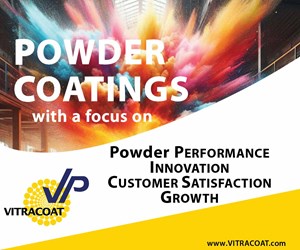Water in Paint Overspray
Question: We spray a silicone resin, solvent-based coating via airless spraying.
Question:
We spray a silicone resin, solvent-based coating via airless spraying. On hot humid days we get water in the material as it is sprayed onto the part. This is made evident by the milky color of the overspray. We thin back and reuse the over-spray. We had been adding glycol ether pm to soak up the water but found that it formed some sort of emulsion that fell to the bottom of the tank.
We were afraid that some needed components of the coating might be caught in the emulsion as well. We thought that the ether idea might be a bad one, because it would keep the water in the system. How would you suggest handling water contamination like this? P.J.
Answer:
Your concern is well-founded. There is not only the possibility of some component of the coating being emulsified and removed, there is also the possibility of trapping water in or under the coating film which can lead to film failure. It is well known that certain lacquer films develop surface blush and haze when sprayed on humid days. As my friend who has a basement water remediation service says on his TV commercial, "Ah, dry up"! I will give you the same advice.
When I had a real job, I would have launched an investigation of the effects of these conditions on coating performance. Today, most firms don't have time, manpower nor money to pursue these projects. As I see it, you have two choices. Don't spray on humid days or condition your spray booth make-up air. Air conditioning or dehumidifying make-up air can be an expensive solution. However, eliminating film failures may be worth the expense.












